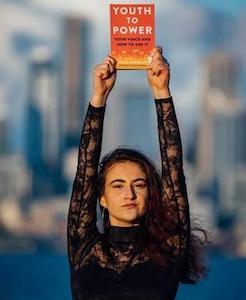
Jamie Margolin- Keynote Speaker
Jamie Margolin is a 19-year-old Jewish Colombian-American organizer, activist, author, public speaker, and Film & TV student at NYU. She is the co-founder of the international youth climate justice movement Zero Hour. Read more of Jamie's bio here.
Earth Talk presentation: Getting to the Roots of the Green New Deal
The Earth’s global temperature is expected to rise 4° Celsius by 2100 if drastic worldwide changes are not made immediately. This will inevitably and irreversibly alter every aspect of life on Earth. How will our seasons and societal systems change? The Green New deal is a resolution seeking to address climate change through a just transition to renewable energy sources. Jamie will present a vision for the future that is focused on structural change to our entire economic and energy system and addressing socioeconomic inequality.
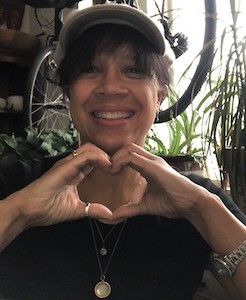
Donna Moodie - Keynote Speaker
Donna Moodie is the Executive Director of the Capitol Hill EcoDistrict & Executive Vice President of Community Development at Community Roots Housing. Read more of Donna's bio here.
Earth Talk presentation: Everyday Environmentalism
The average person can be a champion for the movement against the Climate Crisis; Donna believes that activists do not have to belong to a certain class, socio-economic or educational background. She emphasizes that welcoming people to the movement who are just beginning to understand what their role is is incredibly valuable. Donna will highlight acts of preservation, conservation, the economy, and resilience and hopes to share the story of a few contributors. It's a people's movement and we can ignite growth.

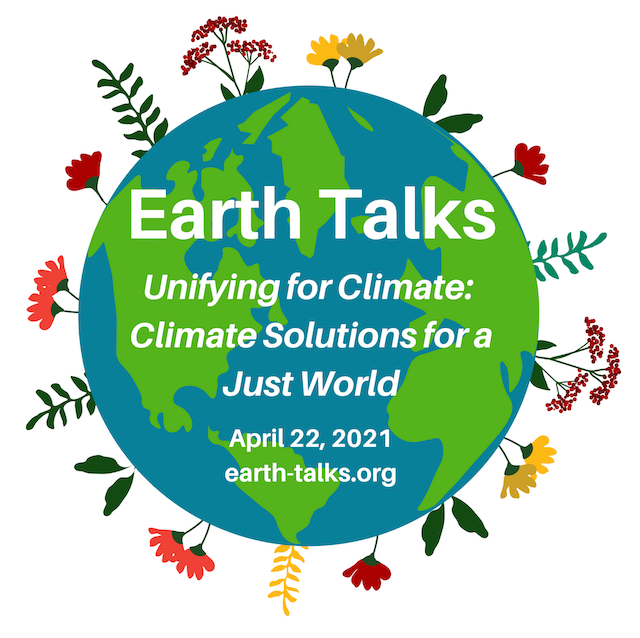
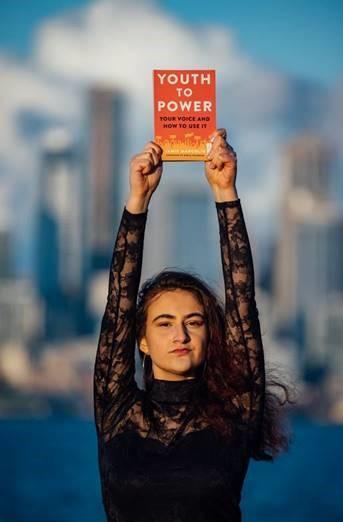
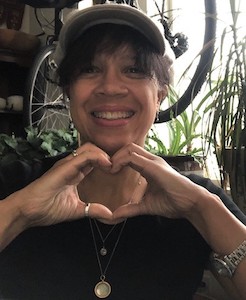
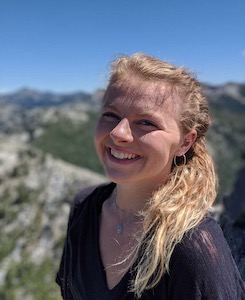
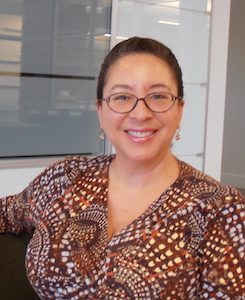 Rosalund (Roz) Jenkins applies experience in public policy, performance management, and workforce development to her latest role as Economic Inclusion Manager for Emerald Cities Seattle, since January 2018. Jenkins designs workforce programs, crafts fundraising strategies, and builds partnerships to advance equity in the clean energy transition – especially around worker training, supplier inclusion, and anchor institution engagement. Jenkins’ portfolio spans the non-profit, for-profit, and government sectors. Her contributions include: partnering with diverse advocates to help draft, pass, and enact Washington State’s first charter school law; building social media platforms to support training and business development for WMBE firms; organizing community leaders and families to research, draft, and pass legislation benefitting Black and Brown public school students; and, championing statewide quality/performance initiatives for workforce services, revenue collection, and community engagement – ultimately winning the Governor’s Distinguished Management Leadership Award.
Rosalund (Roz) Jenkins applies experience in public policy, performance management, and workforce development to her latest role as Economic Inclusion Manager for Emerald Cities Seattle, since January 2018. Jenkins designs workforce programs, crafts fundraising strategies, and builds partnerships to advance equity in the clean energy transition – especially around worker training, supplier inclusion, and anchor institution engagement. Jenkins’ portfolio spans the non-profit, for-profit, and government sectors. Her contributions include: partnering with diverse advocates to help draft, pass, and enact Washington State’s first charter school law; building social media platforms to support training and business development for WMBE firms; organizing community leaders and families to research, draft, and pass legislation benefitting Black and Brown public school students; and, championing statewide quality/performance initiatives for workforce services, revenue collection, and community engagement – ultimately winning the Governor’s Distinguished Management Leadership Award. 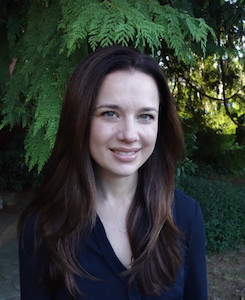 Dr. Julie Homchick Crowe is an Assistant Professor at Seattle University in the Communication and Media Department. Broadly, her research seeks to better understand science denialism arguments through a critical framework, particularly in the areas of biology and health.
Dr. Julie Homchick Crowe is an Assistant Professor at Seattle University in the Communication and Media Department. Broadly, her research seeks to better understand science denialism arguments through a critical framework, particularly in the areas of biology and health.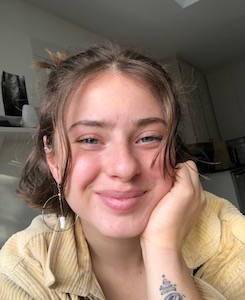 Marguerite Pilon is an artist, designer, and environmentalist currently studying Design at Seattle University with a minor in Environmental Studies. At the core, she wants her art to be a tool in exploring topics of ecology, conservation, sustainability, and environmental justice. Marguerite believes in the power of art and design to educate and inspire change, as well as a way to foster and explore a deeper connection to both the human and non-human worlds.
Marguerite Pilon is an artist, designer, and environmentalist currently studying Design at Seattle University with a minor in Environmental Studies. At the core, she wants her art to be a tool in exploring topics of ecology, conservation, sustainability, and environmental justice. Marguerite believes in the power of art and design to educate and inspire change, as well as a way to foster and explore a deeper connection to both the human and non-human worlds.
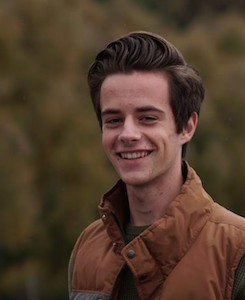 Zak Smith is a second-year Urban Sustainability major and a Seattle native. He recently interned with SU Groundskeeping. He believes in addressing societal issues through challenging the fundamentals cities are made on and through partnerships with communities.
Zak Smith is a second-year Urban Sustainability major and a Seattle native. He recently interned with SU Groundskeeping. He believes in addressing societal issues through challenging the fundamentals cities are made on and through partnerships with communities.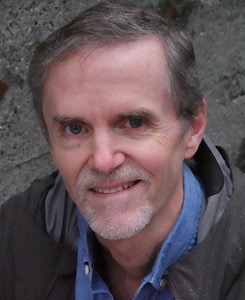 John Hainze is an entomologist and ethicist. He is an affiliate at the Seattle University Center for Environmental Justice and Sustainability, an adjunct faculty member at Seattle University, and vice president of science and research at Thermacell Repellents, Inc.
John Hainze is an entomologist and ethicist. He is an affiliate at the Seattle University Center for Environmental Justice and Sustainability, an adjunct faculty member at Seattle University, and vice president of science and research at Thermacell Repellents, Inc.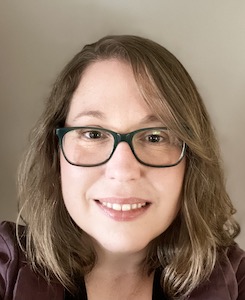 Erin Fried (she/her), EcoDistrict Program Manager, is an urban planner with a background in environmental policy, diplomacy, and restorative justice. She leads the Capitol Hill EcoDistrict’s public life work and staffs the Capitol Hill Arts District. Originally from Baltimore, she lived in Capitol Hill for ten years and still enjoys meeting friends and colleagues in its many parks, sidewalks, and passageways.
Erin Fried (she/her), EcoDistrict Program Manager, is an urban planner with a background in environmental policy, diplomacy, and restorative justice. She leads the Capitol Hill EcoDistrict’s public life work and staffs the Capitol Hill Arts District. Originally from Baltimore, she lived in Capitol Hill for ten years and still enjoys meeting friends and colleagues in its many parks, sidewalks, and passageways.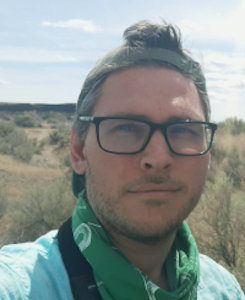 Joshua Morris (he/him) is the Urban Conservation Manager at Seattle Audubon. Josh supports the organization’s mission to advocate and organize for cities where people and birds thrive by working with partners and individuals to reduce urban hazards to wildlife and to protect and enhance urban habitats.
Joshua Morris (he/him) is the Urban Conservation Manager at Seattle Audubon. Josh supports the organization’s mission to advocate and organize for cities where people and birds thrive by working with partners and individuals to reduce urban hazards to wildlife and to protect and enhance urban habitats.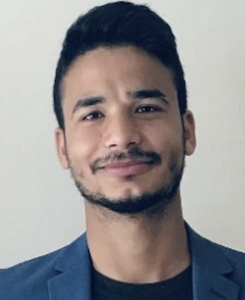 Nabin Kc was born in Bardiya, Nepal. He studied at his high school in Kathmandu, Nepal and traveled to Seattle for further studies, and is a first-generation student in USA. Nabin speaks three different languages: Nepali, Hindi, and English. Nabin is a senior electrical engineering student at Seattle University. He is a part of ECE Ambassadors. He is passionate about electrical renewable energy systems, their operations, and distributions. His hobbies include playing soccer and hiking.
Nabin Kc was born in Bardiya, Nepal. He studied at his high school in Kathmandu, Nepal and traveled to Seattle for further studies, and is a first-generation student in USA. Nabin speaks three different languages: Nepali, Hindi, and English. Nabin is a senior electrical engineering student at Seattle University. He is a part of ECE Ambassadors. He is passionate about electrical renewable energy systems, their operations, and distributions. His hobbies include playing soccer and hiking.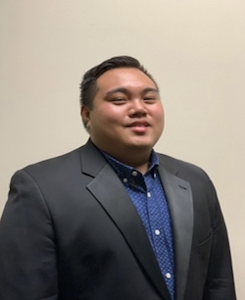 Ian Paulo Santiago is currently a senior electrical engineering student at Seattle University and is from Honolulu, Hawaii on the island of Oahu. The only child of Filipino immigrants, Ian is a first-generation college student who seeks to learn and grow as an individual, and to find various ways to make a difference in his community. His engineering interests include power engineering, medical technology, and anything that has to do with aviation and aerospace. When he’s not busy studying, he can be found listening to music, singing and making covers of his favorite artists, and playing video games on the latest video game consoles.
Ian Paulo Santiago is currently a senior electrical engineering student at Seattle University and is from Honolulu, Hawaii on the island of Oahu. The only child of Filipino immigrants, Ian is a first-generation college student who seeks to learn and grow as an individual, and to find various ways to make a difference in his community. His engineering interests include power engineering, medical technology, and anything that has to do with aviation and aerospace. When he’s not busy studying, he can be found listening to music, singing and making covers of his favorite artists, and playing video games on the latest video game consoles.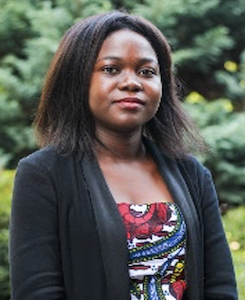 Christiana Tembo was born in Kinshasa but spent most of her childhood in the small village of Muanda in the Democratic Republic of Congo. She came to the United States in 2016 and considers herself a first-generation student. Christiana speaks three different languages: French, Lingala, and English. Christiana is a senior electrical engineering student at Seattle University. She is also the president of the National Society of Black Engineers (NSBE) at Seattle University. She has always been passionate about generating electricity while being respectful of the environment. Her hobbies include reading and watching soccer.
Christiana Tembo was born in Kinshasa but spent most of her childhood in the small village of Muanda in the Democratic Republic of Congo. She came to the United States in 2016 and considers herself a first-generation student. Christiana speaks three different languages: French, Lingala, and English. Christiana is a senior electrical engineering student at Seattle University. She is also the president of the National Society of Black Engineers (NSBE) at Seattle University. She has always been passionate about generating electricity while being respectful of the environment. Her hobbies include reading and watching soccer.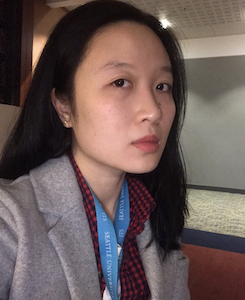 Yen Tran was born in a small town in Vietnam. She went to the United States five years ago to pursue a bachelor's degree in electrical engineering. She is the first generation going to college. One interesting fact is that she has a background in International Law back in Vietnam and switched to the engineering field after coming to the United States. She speaks Vietnamese and English. She has worked at the Seattle University ITS department since 2019. She has a passion for computer hardware techniques, applied computing applications, virtual reality for memory loss, and computer network security. She loves hiking and playing board games with friends.
Yen Tran was born in a small town in Vietnam. She went to the United States five years ago to pursue a bachelor's degree in electrical engineering. She is the first generation going to college. One interesting fact is that she has a background in International Law back in Vietnam and switched to the engineering field after coming to the United States. She speaks Vietnamese and English. She has worked at the Seattle University ITS department since 2019. She has a passion for computer hardware techniques, applied computing applications, virtual reality for memory loss, and computer network security. She loves hiking and playing board games with friends.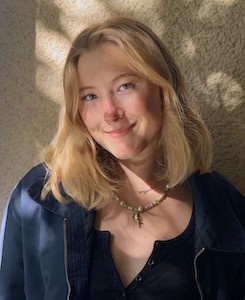 Gabby Farrer is a junior at Santa Clara University studying Environmental Studies and getting minors in sustainability, studio art, and Spanish. She is originally from Malibu, CA, and has lived in California her whole life.
Gabby Farrer is a junior at Santa Clara University studying Environmental Studies and getting minors in sustainability, studio art, and Spanish. She is originally from Malibu, CA, and has lived in California her whole life.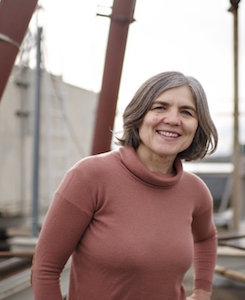 Beate Liepert is a lecturer in the department of civil and environmental engineering at SeattleU. She has been working as a climate scientist since the 1990s at Columbia University’s Lamont Doherty Earth Observatory in New York City, the Max Planck Institute for Meteorology in Hamburg, and at Northwest Research Associates in Redmond WA. She is the author of over 50 research articles and was contributing author of the Intergovernmental Panel on Climate Change 4th Assessment Report that was awarded the Nobel Peace Prize in 2006. Her work is portrayed in the BBC documentary “Dimming the Sun”. Beate received her PhD in meteorology from the department of physics of the Ludwig Maximilians University in Munich.
Beate Liepert is a lecturer in the department of civil and environmental engineering at SeattleU. She has been working as a climate scientist since the 1990s at Columbia University’s Lamont Doherty Earth Observatory in New York City, the Max Planck Institute for Meteorology in Hamburg, and at Northwest Research Associates in Redmond WA. She is the author of over 50 research articles and was contributing author of the Intergovernmental Panel on Climate Change 4th Assessment Report that was awarded the Nobel Peace Prize in 2006. Her work is portrayed in the BBC documentary “Dimming the Sun”. Beate received her PhD in meteorology from the department of physics of the Ludwig Maximilians University in Munich..JPG)
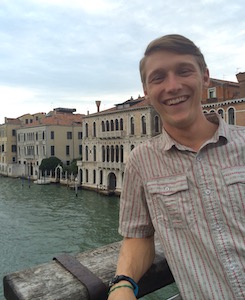 Alex Chapman is a senior in the Environmental Studies major. Beginning at the University of Oregon as a freshman and making his way through UC Davis, in California, Alex transferred to SU last year. Through his interdisciplinary college career, Alex has found a passion for the environment, which he believes is deeply intertwined with people. Alex has done a lot of work in the food sector, promoting sustainable agriculture and advocating for equitable food access.
Alex Chapman is a senior in the Environmental Studies major. Beginning at the University of Oregon as a freshman and making his way through UC Davis, in California, Alex transferred to SU last year. Through his interdisciplinary college career, Alex has found a passion for the environment, which he believes is deeply intertwined with people. Alex has done a lot of work in the food sector, promoting sustainable agriculture and advocating for equitable food access.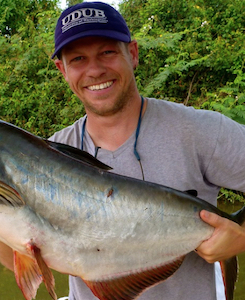 an instructor in Biology at Seattle University. He is a community ecologist interested in freshwater and marine food web interactions. More specifically, Thomas studies how human use of water resources and watershed landscapes influences the stability of aquatic communities. He uses a combination of empirical methods and field surveys to conduct research and in recent years, has increasingly collaborated with an interdisciplinary team of individuals to develop aquatic resource management solutions.
an instructor in Biology at Seattle University. He is a community ecologist interested in freshwater and marine food web interactions. More specifically, Thomas studies how human use of water resources and watershed landscapes influences the stability of aquatic communities. He uses a combination of empirical methods and field surveys to conduct research and in recent years, has increasingly collaborated with an interdisciplinary team of individuals to develop aquatic resource management solutions.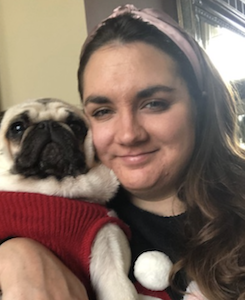 Meghan Vismara Benavides attended Saint Mary's College of Notre Dame in Indiana for her bachelor's degree in Elementary Education, with minors in Spanish and Italian. After college, she went to Alexandria, Virginia, to teach middle school science. She has taught in the public school system for seven years, teaching 3rd, 5th, 6th, and 7th grades in and around Washington DC. She received her master's degree from Virginia Tech in Spanish Linguistics and Literature with a thesis on code-switching. She has written over three textbooks worth of material for students from 3rd-7th grade and sold thousands of products with her business "Learning is not Quiet."
Meghan Vismara Benavides attended Saint Mary's College of Notre Dame in Indiana for her bachelor's degree in Elementary Education, with minors in Spanish and Italian. After college, she went to Alexandria, Virginia, to teach middle school science. She has taught in the public school system for seven years, teaching 3rd, 5th, 6th, and 7th grades in and around Washington DC. She received her master's degree from Virginia Tech in Spanish Linguistics and Literature with a thesis on code-switching. She has written over three textbooks worth of material for students from 3rd-7th grade and sold thousands of products with her business "Learning is not Quiet." 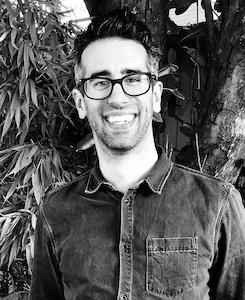 Dr. Aaron Ottinger (he/him) is an Instructor in the Department of Digital Technology and Cultures at Seattle University. He focuses on the intersection between digital technology, social justice, and the environment. He also researches and writes on the historical connections between literature, math, media, and the mind. He has a forthcoming publication on “Mapping the Global Ecodigital Divide: A Collaborative Exercise for Online Classrooms” in Interdisciplinary Digital Engagement in the Arts & Humanities (summer 2021). Other recent articles and book chapters have appeared in The Palgrave Handbook of Literature and Mathematics (2021), Romantic Circles Pedagogy Commons (2020), and Romanticism and Speculative Realism (Bloomsbury 2019). He is currently at work on a book project entitled, “Astral Romanticism: Poetics, Mathematics, Media, and Realism.”
Dr. Aaron Ottinger (he/him) is an Instructor in the Department of Digital Technology and Cultures at Seattle University. He focuses on the intersection between digital technology, social justice, and the environment. He also researches and writes on the historical connections between literature, math, media, and the mind. He has a forthcoming publication on “Mapping the Global Ecodigital Divide: A Collaborative Exercise for Online Classrooms” in Interdisciplinary Digital Engagement in the Arts & Humanities (summer 2021). Other recent articles and book chapters have appeared in The Palgrave Handbook of Literature and Mathematics (2021), Romantic Circles Pedagogy Commons (2020), and Romanticism and Speculative Realism (Bloomsbury 2019). He is currently at work on a book project entitled, “Astral Romanticism: Poetics, Mathematics, Media, and Realism.”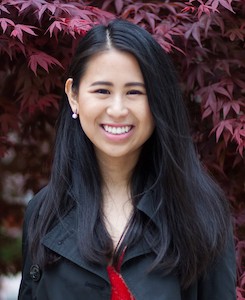 Kaede Kawauchi is a Program Manager at the Intentional Endowments Network (IEN). She focuses on developing strategies, industry relationships and resources to grow and manage the network, with a particular focus on programs related to diversity, shareholder engagement, and community investing. She also handles the network's impact analysis. Prior to IEN, Kaede worked at the Japan Center for International Exchange, a policy institute in New York, where she managed a disaster recovery fund to invest in Japanese social enterprises and organized educational programs for business executives, parliamentarians, journalists, and NGO leaders. Kaede has a B.A. from the University of Pennsylvania in International Relations and a M.A. from the Tufts Fletcher School of Law and Diplomacy with a focus on Business for Social Impact and Development Economics. At the Fletcher School, she led a 70-member impact investing group which provided pro-bono advisory services for promising social enterprises.
Kaede Kawauchi is a Program Manager at the Intentional Endowments Network (IEN). She focuses on developing strategies, industry relationships and resources to grow and manage the network, with a particular focus on programs related to diversity, shareholder engagement, and community investing. She also handles the network's impact analysis. Prior to IEN, Kaede worked at the Japan Center for International Exchange, a policy institute in New York, where she managed a disaster recovery fund to invest in Japanese social enterprises and organized educational programs for business executives, parliamentarians, journalists, and NGO leaders. Kaede has a B.A. from the University of Pennsylvania in International Relations and a M.A. from the Tufts Fletcher School of Law and Diplomacy with a focus on Business for Social Impact and Development Economics. At the Fletcher School, she led a 70-member impact investing group which provided pro-bono advisory services for promising social enterprises.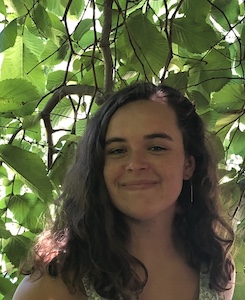 Keira Cruickshank (she/her) is a third-year student studying sociology and creative writing. She has been a member of Sustainable Student Action since her freshman year and is also involved with the Gender Justice Center and Inigo Productions. On the weekends, Keira enjoys going to Yes Farm with Faith!
Keira Cruickshank (she/her) is a third-year student studying sociology and creative writing. She has been a member of Sustainable Student Action since her freshman year and is also involved with the Gender Justice Center and Inigo Productions. On the weekends, Keira enjoys going to Yes Farm with Faith!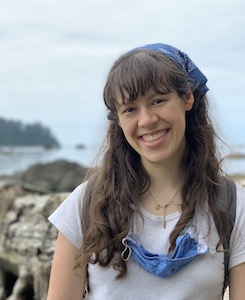 Faith Chamberlain (she/her/hers) is a third-year Seattle University student studying biology and psychology who has been involved in Sustainable Student Action since her first-year. On campus, she is involved in several other student organizations and is a Resident Assistant for Housing and Residence Life
Faith Chamberlain (she/her/hers) is a third-year Seattle University student studying biology and psychology who has been involved in Sustainable Student Action since her first-year. On campus, she is involved in several other student organizations and is a Resident Assistant for Housing and Residence Life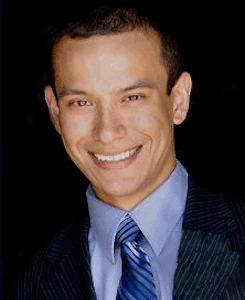 Dr. Henry Louie received is a Professor in the Department of Electrical and Computer Engineering at Seattle University. In 2015 Dr. Louie was Fulbright Scholar to Copperbelt University in Kitwe, Zambia. He is the President and Co-founder of KiloWatts for Humanity, a non-profit organization providing off-grid electricity access and business opportunities in sub-Saharan Africa. Dr. Louie is an Associate Editor for Energy for Sustainable Development and is a founding member of the IEEE PES Working Group on Sustainable Energy Systems for Developing Communities. Dr. Louie is recognized as an IEEE Distinguished Lecturer for his expertise on energy poverty. He is a Senior Member of the IEEE and was a registered professional engineer in Zambia.
Dr. Henry Louie received is a Professor in the Department of Electrical and Computer Engineering at Seattle University. In 2015 Dr. Louie was Fulbright Scholar to Copperbelt University in Kitwe, Zambia. He is the President and Co-founder of KiloWatts for Humanity, a non-profit organization providing off-grid electricity access and business opportunities in sub-Saharan Africa. Dr. Louie is an Associate Editor for Energy for Sustainable Development and is a founding member of the IEEE PES Working Group on Sustainable Energy Systems for Developing Communities. Dr. Louie is recognized as an IEEE Distinguished Lecturer for his expertise on energy poverty. He is a Senior Member of the IEEE and was a registered professional engineer in Zambia.